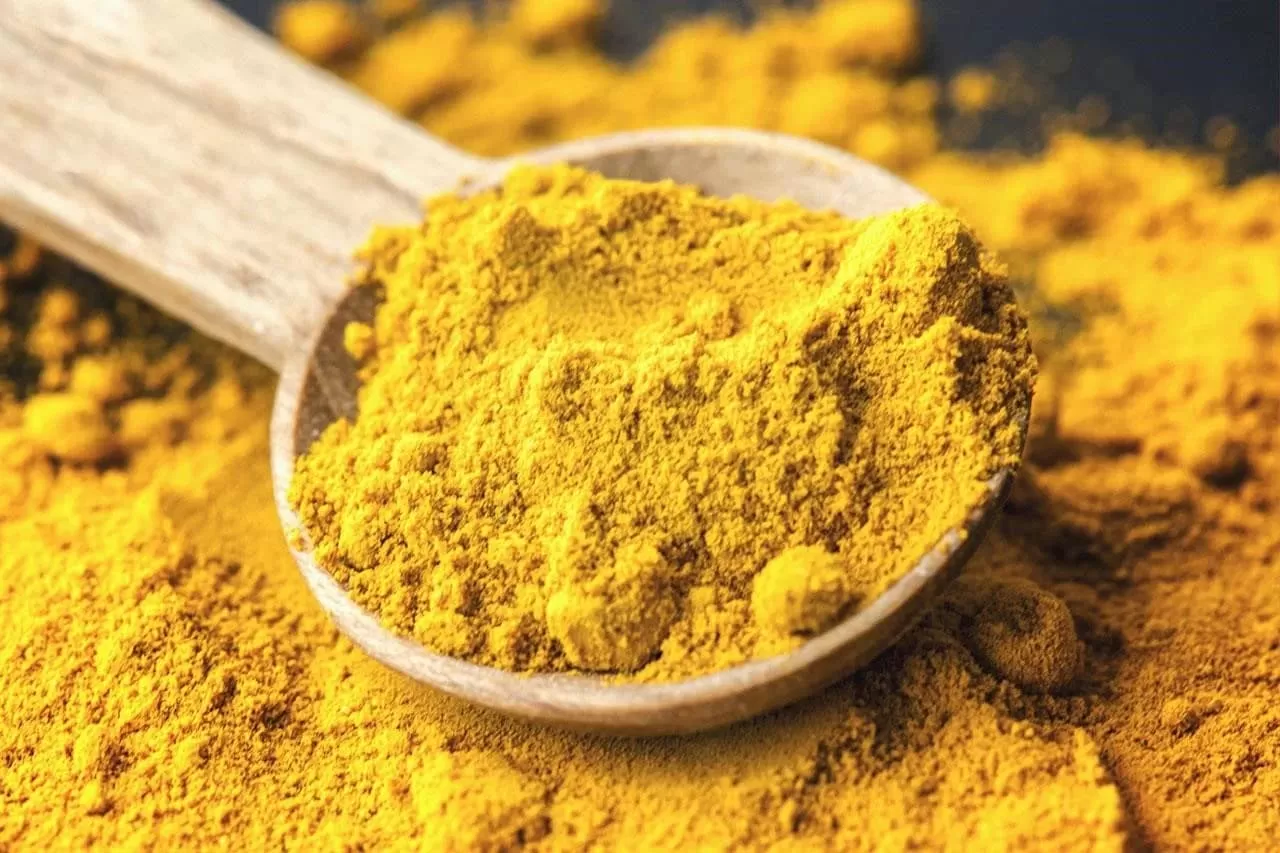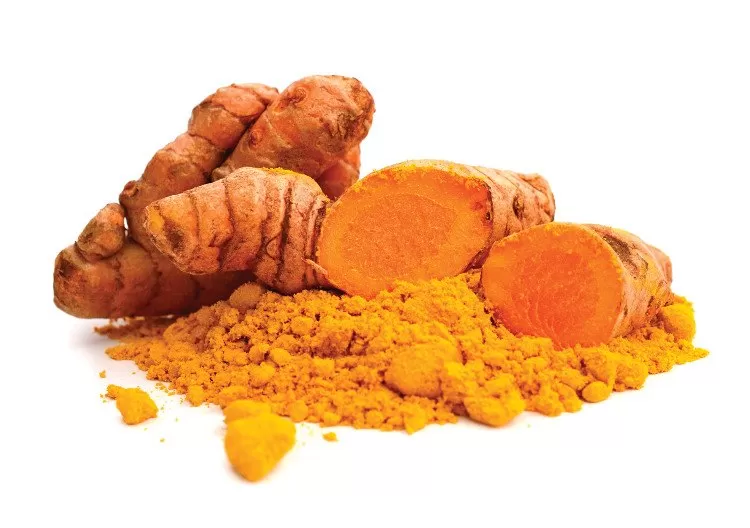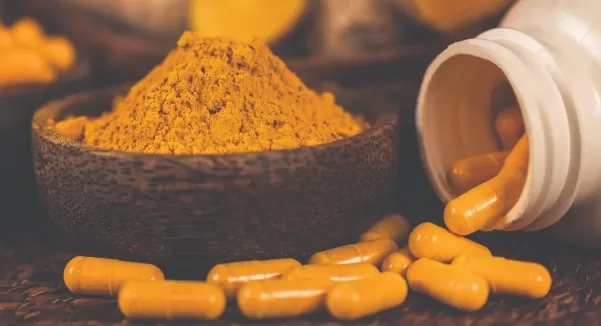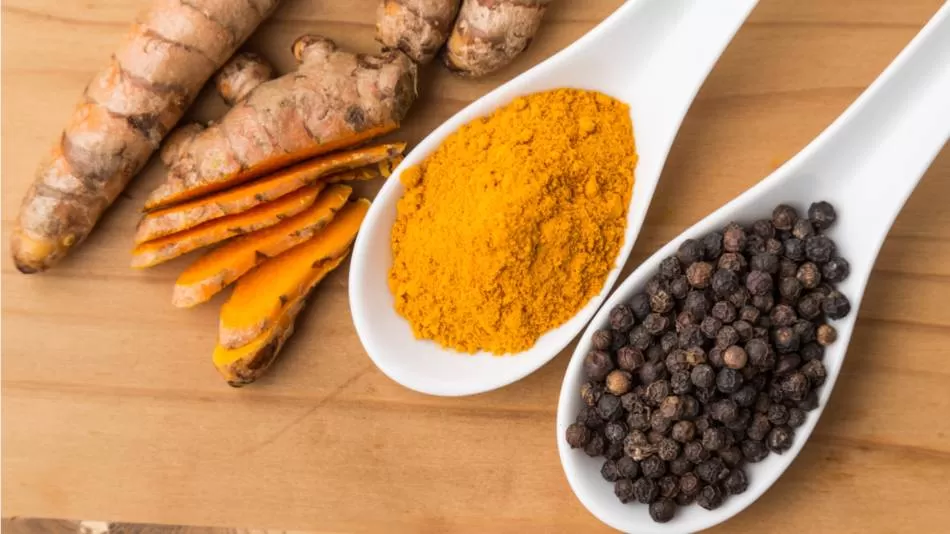- 0086-571-85302990
- sales@greenskybio.com
Interactions: What Should Not Be Mixed with Turmeric
2025-04-28
Turmeric, a vibrant yellow spice derived from the root of the Curcuma longa plant, has been revered for centuries both as a culinary staple and a powerful medicinal herb in traditional medicine systems like Ayurveda and Chinese medicine. Its active compound, Curcumin, is responsible for turmeric’s health benefits, including anti-inflammatory, antioxidant, and anti-cancer properties. However, as its popularity has surged in the realm of health and wellness, concerns about interactions with other substances have emerged. Understanding what should not be mixed with turmeric is essential to ensure both safety and efficacy.
The Power of Turmeric: Benefits and Uses
Turmeric has been celebrated for its potent health benefits. It is widely used to support joint health, reduce inflammation, improve digestion, and bolster immune function. It has also been studied for potential effects on heart health, brain function, and cancer prevention. The culinary applications of turmeric are broad, used in curries, teas, and supplements, making it accessible to people worldwide.
Potential Interactions
Despite its benefits, turmeric can interact with certain medications and conditions, potentially causing adverse effects or diminishing its therapeutic potential. Here we explore key substances and scenarios where caution is warranted.
1. Blood Thinners
Turmeric and its components, particularly Curcumin, have blood-thinning properties. While this can be beneficial by reducing the risk of heart disease and improving circulation, it poses risks for individuals taking anticoagulant or antiplatelet medications such as warfarin, aspirin, clopidogrel, or heparin. Combining turmeric with these medications can enhance their effects, increasing the risk of bleeding or bruising.
2. Diabetes Medications
Curcumin may help regulate blood sugar levels, which can be advantageous for individuals with diabetes. However, when consumed with diabetes medications such as insulin or oral hypoglycemic agents, turmeric could potentiate a hypoglycemic effect, which might lead to dangerously low blood sugar levels. Monitoring and adjusting medication dosages may be necessary when incorporating turmeric into the diet.
3. Antacids and Drugs for Acid Reflux
Turmeric is known to stimulate gastric acid production, which can exacerbate conditions like acid reflux or gastric ulcers. When taken concurrently with antacid medications such as omeprazole, ranitidine, or esomeprazole, turmeric might counteract their effects, leading to increased discomfort and digestive symptoms. For individuals prone to acid reflux, moderation is key.
4. Chemotherapy Drugs
Some studies suggest that curcumin may interact with chemotherapy drugs, potentially affecting their efficacy and metabolism. While turmeric’s antioxidant properties might seem beneficial to cancer patients, these interactions warrant caution, and discussions with healthcare providers are crucial to managing supplement intake alongside cancer treatment.
5. Iron Supplements
Turmeric has been indicated to interfere with iron absorption. For individuals dealing with iron deficiency anemia or those on iron supplementation, consuming high amounts of turmeric could inhibit iron uptake, counteracting the intended effects of supplementation. Proper timing and moderation in consumption are advised.
6. Herbs and Supplements with Similar Effects
Turmeric’s interactions aren’t limited to pharmaceuticals; other herbs and supplements with similar effects—such as those with anticoagulant properties like ginkgo biloba, ginger, and garlic—may pose risks when combined. The cumulative effects may elevate risks like potential bleeding or lowered blood sugar.
Considerations for Special Populations
Pregnancy and Breastfeeding
Although turmeric is generally considered safe in culinary amounts, its concentrated forms (such as supplements) may stimulate uterine contractions or affect hormone levels, posing risks during pregnancy. Breastfeeding mothers are also advised to consult with healthcare providers before adding turmeric supplements to their regimen.
Individuals with Gallbladder Issues
Turmeric can provoke the gallbladder to release bile, which could aggravate gallbladder obstructions or gallstone conditions. For those with known gallbladder disorders, caution is necessitated.
Best Practices for Safe Consumption
Navigating potential interactions doesn't mean eliminating turmeric altogether. Instead, it necessitates informed, mindful consumption. Here are some best practices:
- Consultation with Healthcare Providers: Individuals on medication should always consult their healthcare providers before starting turmeric supplements to ensure compatibility with existing treatment plans.
- Moderation: Excessive consumption increases interaction risks. Balancing turmeric intake within dietary or supplement guidelines mitigates potential adverse effects.
- Awareness of Symptoms: Monitoring the body’s responses—such as changes in bleeding, sugar levels, or gastrointestinal discomfort—is vital in assessing turmeric’s compatibility.
Conclusion
Turmeric remains a powerful ally in promoting health and wellness. Its myriad of benefits does not overshadow the importance of understanding and respecting its interactions with certain medications and conditions. With careful integration and professional guidance, individuals can safely enjoy the benefits of this golden spice while minimizing risks. As with any health regimen, personal consultation with healthcare professionals ensures that one’s health strategies are both effective and safe, allowing turmeric to serve as a fruitful component of a comprehensive approach to long-term wellness.
- ▶ Hesperidin
- ▶ citrus bioflavonoids
- ▶ plant extract
- ▶ lycopene
- ▶ Diosmin
- ▶ Grape seed extract
- ▶ Sea buckthorn Juice Powder
- ▶ Beetroot powder
- ▶ Hops Extract
- ▶ Artichoke Extract
- ▶ Reishi mushroom extract
- ▶ Astaxanthin
- ▶ Green Tea Extract
- ▶ Curcumin Extract
- ▶ Horse Chestnut Extract
- ▶ Other Problems
- ▶ Boswellia Serrata Extract
- ▶ Resveratrol Extract
- ▶ Marigold Extract
- ▶ Grape Leaf Extract
- ▶ blog3
- ▶ blog4
- ▶ blog5
-
What is the most effective form of curcumin?
2025-04-28
-
Is curcumin good for the liver?
2025-04-28
-
Turmeric vs. Curcumin: Which is Better?
2025-04-28
-
Can curcumin have side effects?
2025-04-28
-
Curcumin Extract: When Should You Take It?
2025-04-28
-
Red Date Extract
2025-04-28
-
Polygonum Cuspidatum Extract
2025-04-28
-
Black Pepper Extract
2025-04-28
-
Fenugreek Extract Powder
2025-04-28
-
Yam Extract
2025-04-28
-
Gynostemma pentaphyllum extract
2025-04-28
-
Quercetin
2025-04-28
-
Stevia Extract
2025-04-28
-
Wheat Germ Extract
2025-04-28
-
Hawthorn powder
2025-04-28






























